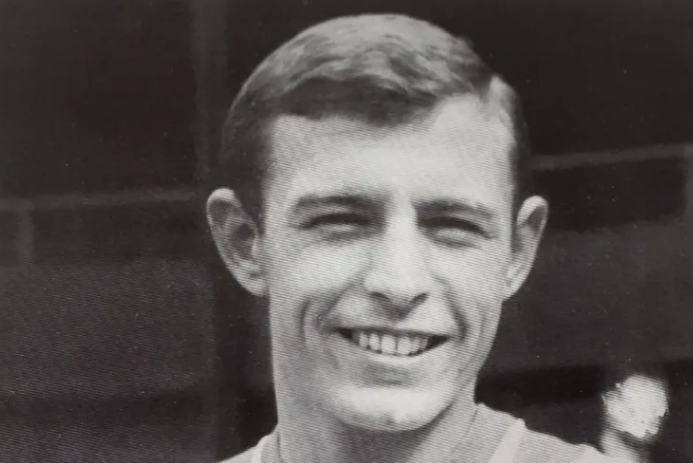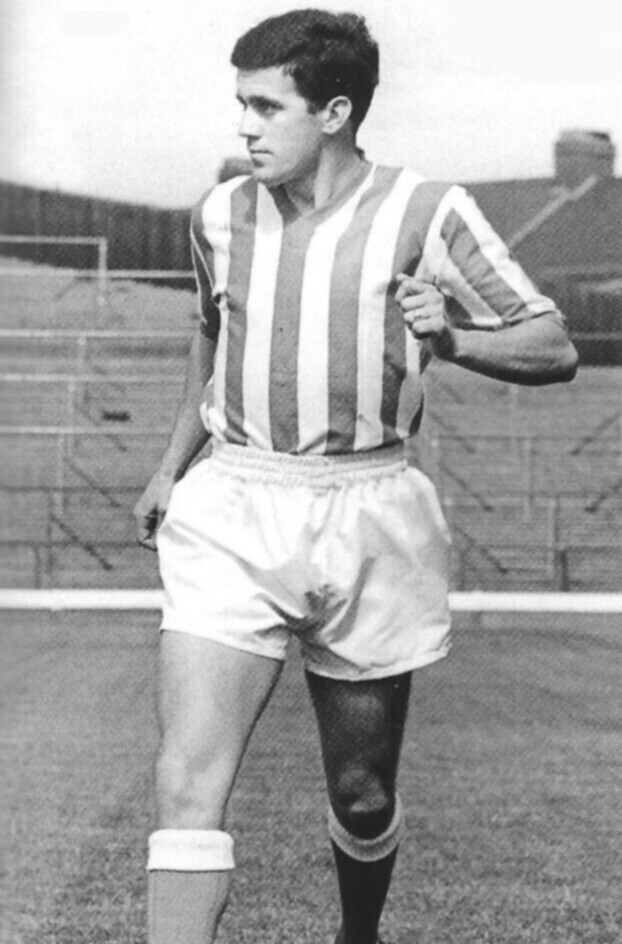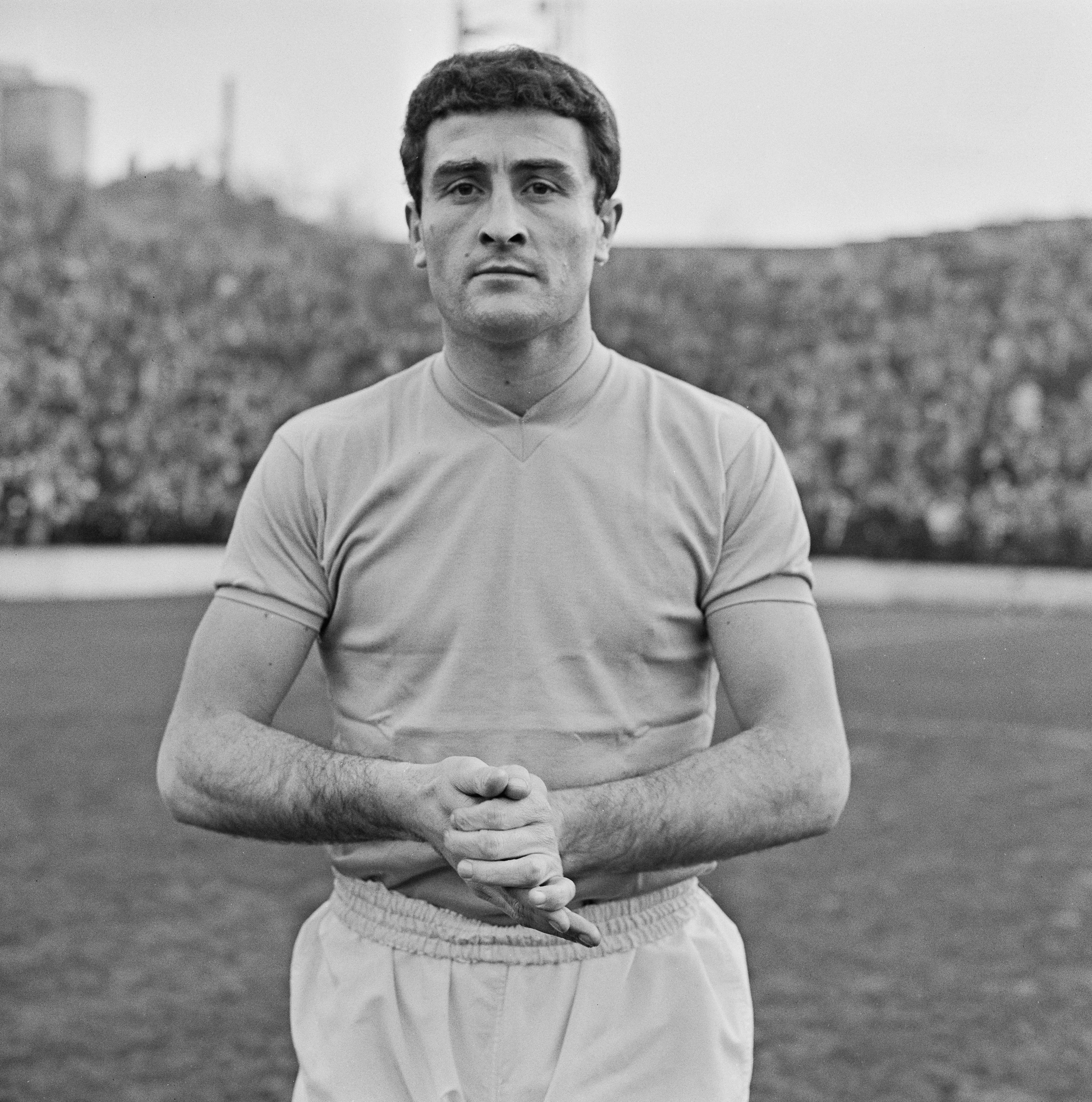Sunderland’s Dismal Display Against Bristol Rovers: A Reflection of Football’s Harsh Realities and the Cost of Mediocrity in the Beautiful Game
On November 5, 1960, Sunderland faced Bristol Rovers at Roker Park, a match that would become a pivotal moment in the club’s tumultuous season. Entering the fixture with eleven games without a win, Sunderland was under immense pressure to secure a victory. The stakes were high, not just for the players on the field but for the supporters who had witnessed a decline in performance and morale. The season had begun with promise, as Sunderland went six games unbeaten, but the subsequent downturn had left fans disillusioned and questioning the team’s direction.
Bristol Rovers, meanwhile, were also struggling, sitting in the bottom third of Division Two, just two points ahead of Sunderland. Their squad was depleted, missing three first-team regulars, and they were set to debut twenty-one-year-old Terry Oldfield at center forward. The match had an added narrative with Ted Purdon returning to Roker Park, a player who had previously flourished under Sunderland’s management before being sold by Alan Brown. The anticipation of a competitive encounter was palpable, but as the match unfolded, it became clear that both teams were struggling to find their footing.
Sunderland managed to secure a 2-0 victory, with goals from Harry Hooper and Ian Lawther, but the performance left much to be desired. The match was characterized by a lack of creativity and energy, with both teams failing to capitalize on their opportunities. Sunday Sun reporter Alan Sleeman’s scathing review of the game highlighted the mediocrity on display. He lamented the uninspiring nature of the contest, suggesting that he would have preferred to stay home with a book rather than witness the lackluster performance.
Sleeman’s critique was particularly harsh on Sunderland’s forwards, describing them as “frighteningly lethargic.” Despite Hooper’s early goal, which came from a well-placed shot at the penalty spot, the team struggled to maintain momentum. The players appeared to lack the drive and enthusiasm needed to build on their lead, with Sleeman noting that Hooper’s initial spark seemed to fade as the game progressed. Jack Overfield, who provided the assist for the first goal, was criticized for his inability to justify the £10,000 transfer fee, with Sleeman describing his performance as “fidgeting and fumbling.”
The match statistics reveal a stark reality: Sunderland’s attack was toothless, and their defense faced minimal challenges from a Bristol Rovers side that lacked cohesion and creativity. Goalkeeper Peter Wakeham recorded his first clean sheet in twelve weeks, but this was more a reflection of the opposition’s ineffectiveness than Sunderland’s defensive prowess. The Rovers’ attack, led by the inexperienced Oldfield, failed to test Wakeham, who had little to do throughout the match.
Sleeman’s report was not the only one to portray a grim picture of the game. Other journalists echoed his sentiments, emphasizing the lack of quality from both sides. However, Sleeman did offer some praise to a few Sunderland players, notably Jim McNab, Ambrose Fogarty, and Stan Anderson, who were recognized for their efforts to rally the team. Yet, the overall tone of the reporting suggested that the victory was more a product of Bristol Rovers’ shortcomings than Sunderland’s strengths.
Despite the dismal display, the significance of the result cannot be understated. Stan Anderson later reflected on the game as a turning point for Sunderland’s season. The team went on to remain unbeaten in the league until February 4, 1961, winning seven and drawing four matches. This resurgence was crucial in restoring confidence within the squad and among the supporters. The victory against Bristol Rovers marked the beginning of a more successful chapter for Sunderland, culminating in a strong FA Cup campaign that saw them defeat First Division giants Arsenal and challenge promotion contenders like Liverpool and Norwich.
The broader implications of this match extend beyond the immediate context of the season. It serves as a reminder of the cyclical nature of football, where a single result can shift the trajectory of a club. The pressure to perform, the scrutiny from the media, and the expectations of fans create an environment where mediocrity can quickly become unacceptable. Sunderland’s struggle during this period reflects a common theme in football: the fine line between success and failure, and how quickly fortunes can change.
As the season progressed, Sunderland’s management made strategic decisions that would shape the future of the club. The signing of George Herd from Clyde and the promotion of young forward Nic Sharkey from the youth team were pivotal moves that would influence the team’s dynamics in the coming years. The sale of Ian Lawther to Blackburn Rovers for £18,000, although controversial, was part of a broader strategy to rebuild the squad and invest in new talent, including the acquisition of Brian Clough.
The 1960/61 season ultimately saw Sunderland finish in sixth place in Division Two, a respectable position that hinted at a brighter future. The club’s ability to bounce back from a dismal start serves as a testament to the resilience of the players and the management’s vision for the team. The victory against Bristol Rovers, despite its lackluster nature, laid the groundwork for a season of recovery and growth.
In retrospect, the match against Bristol Rovers on November 5, 1960, encapsulates the complexities of football, where a seemingly mundane game can have far-reaching consequences. The interplay of pressure, performance, and potential creates a narrative that resonates with fans and players alike. As Sunderland navigated the challenges of that season, the lessons learned from their struggles would prove invaluable in shaping the club’s identity and ambitions for years to come.

Eleven games without a win, equalling their worst ever run without a victory, the Lads went into this fixture under some pressure to get a result. Our opponents on this day were Bristol Rovers, languishing in the bottom third of Division Two but two points better off than us coming into this game. The Gas were going to be without three first-team regulars and would be playing twenty-one-year-old Terry Oldfield, a debutant at centre forward. Adding a little bit of spice to the fixture, Ted Purdon would be returning at inside-left for Rovers. Moved on by Alan Brown in March 1957 after scoring forty-two goals in ninety-six appearances from his debut in January 1954, he would surely be looking to put one over the manager who sold him. Ray Mabbutt (the father of Kevin and future Spurs and England international Gary Mabbutt) would also play, but could not impact this game or his team-mates with his usual vigour and effort.
The season (1960/61) had gone awry after an encouraging start going six games undefeated. Sunderland arrived at this fixture in eighteenth position in Division Two, but had put in a credible performance at high-flying Liverpool the previous Saturday and come away with a point, secured with an Ian Lawther goal, his eleventh of the season in all competitions. Could they follow this up with a long-awaited victory to get the season going again!
Alf Greenly, writing in the Journal before the gam,e was anticipating Sunderland getting amongst the goals, especially if they could generate “more thrust from the wings…”.
Sunderland won this game with a goal by Harry Hooper on nine minutes and a goal on eighty-seven minutes by Ian Lawther.

In between the first and second goals an uninspiring contest appears to have ensued that had Sunday Sun reporter Alan Sleeman wishing he had stayed at home and read a book!
Sleeman exonerated Stan Anderson and Jimmy McNab as well as Ambrose Fogarty, but more on them later.
He was not as positive about any other player!
If you thought that it was social media that triggered a more modern trend of abusive communiqués ripping players and teams to shreds, you might need to think again.
Sleeman’s report on the game left the reader in no doubt as to the merit of this victory.
There is an old cliché in football that says you can only beat what is in front of you and by all accounts Bristol Rovers were not very good that day. Despite the presence of a fired-up Ted Purdon who was described as “stampeding” and eventually warned by the referee for his “exuberance”, the opposition offered little.
Goalkeeper Radford did make a few good saves “but was never really tested by an attack that never opened the throttle”.
Sleeman went on “Sunderland goalkeeper Peter Wakeham kept his first clean sheet in twelve weeks … and his yawns to a minimum with only the maximum of effort”.
This may have been partly due to an opposition attack led by “an over-awed centre-forward making his debut against Charlie Hurley”. Sleeman spared few from his withering commentary. “Sunderland forwards were frighteningly lethargic”. “Sunderland barely raised a jog-trot after Harry Hooper had put them ahead after nine minutes with a classic goal from the angle of the penalty spot – but tricky Harry Hooper had better watch out. All the drive and enthusiasm he introduced upon his arrival a month ago is quickly draining away – he did try to infuse some life into his colleagues at the start but he did not keep it up, except to wander wretchedly in the middle looking for the ball”.

Despite providing the cross that led to the first goal, the other winger Jack Overfield was not spared; he was described as “fidgeting and fumbling” and still not justifying the £10,000 paid for his services.
Willie McPheat had two great long-range attempts on goal. One of these went just wide and the other required a full dive from Radford to keep the ball out of the net. As if to emphasise a theme of players being selfish in this game, Sleeman described the youngster as providing no link-up play and carving out no chances for his colleagues. Even Ian Lawther, whose cheeky back-heeled strike on eighty-seven minutes could have been the highlight of the game, was criticised and described as “uninspired”.
The defenders Nelson, Hurley and Ashurst had an easy afternoon in the face of a toothless opposition attack but offered little of any consequence going forwards, according to Sleeman.
He was not the only journalist to portray a dim view of this game, though he was definitely the most critical of the reports I read, singling out individuals as well as the team generally.
To give him his due, he did “exonerate” three Sunderland players. Jim McNab was described as “at least striving to get those half-hearted forwards going”. Ambrose Fogarty, who “tirelessly chased every ball” and Stan Anderson who he said had “tried over and over again to instil a little enthusiasm. He also had several good cracks at goal”.
However the exoneration might have been lost on the reader as the report was highlighted by a drawing of a coffin with the words RIP – this space reserved for anything good to say about the Sunderland match inside the box. They say football is a game of opinions and in an attempt to get some balance on this game I scoured my literature and found some words from Stan Anderson specifically referencing this match. He spoke about the great sense of injustice the team had felt in the previous game at Liverpool upon the award of a very dubious penalty in the dying minutes that snatched the victory from Sunderland. Anderson credits the Bristol Rovers game, or more accurately the result as turning round this season, as the Lads went unbeaten in the league till February 4th, winning seven and drawing four. They also embarked on a very exciting FA Cup campaign, that saw them beat First Division Arsenal at a packed Roker Park, as well as despatching two of the promotion heavyweights in Liverpool and Norwich. This was the season the league and cup double was achieved by Bill Nicholson’s Spurs. The closest they came to losing this was in the sixth round against Sunderland at Roker Park where over 61,000 fans saw Willie McPheat draw Sunderland level just after half-time and then really test the league and cup winners-in-waiting, taking the tie to a replay before losing out.
Sunderland finished this season in sixth position in the league and scanning the statistics from this campaign it would be hard not to agree with Stan Anderson, the progress does seem to start from this game against Bristol Rovers!
Towards the very end of this season George Herd was signed from Clyde and a young forward up from the youth team, Nic Sharkey was given his debut, both of these players would go on to play a pivotal role in the coming seasons.
Despite scoring a very credible twenty-six goals in all competitions that campaign, Alan Brown sold Ian Lawther to Blackburn Rovers for £18,000 to finance his team rebuild, buying Brian Clough in July 1961 for £45,000. The Lads were on the up and you could make a case for it all starting with this dire game!
Division Two | Date – 05.11.1960 | Venue – Roker Park | Attendance – 17,942
Sunderland 2 – 0 Bristol Rovers
Goal Scorers – Hooper 9mins & Lawther 87mins
Sunderland – Wakeham; Nelson; Ashurst; Anderson; Hurley; McNab; H Hooper; McPheat; Lawther; Fogarty; Overfield.
Bristol Rovers – Radford; Hillard; Frowen; Sampson; Pyle; Mabbutt; Pethridge; Jones; Oldfield; Purdon; P Hooper.
